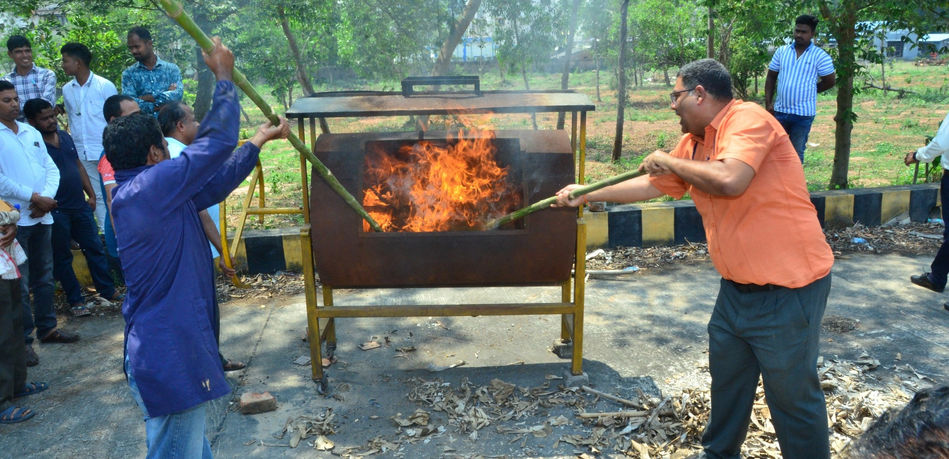In the heartlands of Chendipada, Kaniha, and Rengali—blocks known for their abundant banana cultivation—farmers have long faced a silent challenge. After every harvest, the once-fruitful banana plants are reduced to remnants, often discarded as waste. But what if this "waste" held hidden potential?
Livelihood Alternatives (LA), always at the forefront of innovative livelihood solutions, envisioned a transformation—one that would convert agricultural residue into a valuable resource. In partnership with the Common Research and Technology Development Hub (CRTDH) and the Environment Sustainability Department of CSIR-Institute of Minerals and Materials Technology (IMMT), Bhubaneswar, LA organized a one-of-a-kind training program titled “Technology Demonstration cum Skill Dissemination: Production, Processing & End-to-End Utilization of Biochar.”
Held on March 26, 2025, at CSIR-IMMT, Bhubaneswar, the training brought together 40 progressive banana farmers from across Chendipada and Kaniha blocks of Angul district and Rengali block of Sambalpur district. Participants included members of Maa Bayani Farmer Producer Company (FPC), Shri Champeswar FPCL, Bira Sai FPCL, and several Self-Help Groups (SHGs), all eager to explore sustainable, income-generating innovations.
The day unfolded with live demonstrations and knowledge-sharing sessions on how biochar—a potassium-rich micronutrient—can be produced from banana peduncles using pyrolysis technology. Scientists from CSIR-IMMT, experts from IIM, and senior officials from the Government of Odisha illuminated the science behind biochar and its multifaceted benefits for agriculture.
Biochar is more than just a soil enhancer—it is a game changer. Particularly relevant to Odisha's largely acidic soils, biochar acts as a natural soil regulator, improving pH balance, water retention, and carbon sequestration. Its use not only boosts soil health and crop productivity but also paves the way for future carbon credit trading, tapping into a new revenue stream for farmers.
This training was more than an event; it was the beginning of a movement. A movement to convert what was once seen as waste into a powerful tool for sustainability, economic growth, and environmental resilience. Livelihood Alternatives is proud to be at the helm of this change, empowering rural communities with science-backed solutions and a circular vision for the future.









